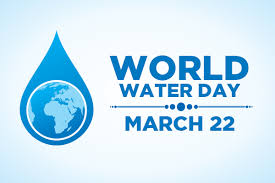By Suleiman Haruna
 One of the most challenging human needs is that of water, it is everywhere but seems never available or enough for use. Water has been on the front burner of development discourse since time immemorial. The sixth Sustainable Development Goal (SDG) targets improving water and sanitation in furtherance of the efforts expended through the Millennium Development Goals (MDGs). It was revealed, by World Health Organization that unlike the water target, the sanitation target was not met by most of Africa by the end of 2015.
One of the most challenging human needs is that of water, it is everywhere but seems never available or enough for use. Water has been on the front burner of development discourse since time immemorial. The sixth Sustainable Development Goal (SDG) targets improving water and sanitation in furtherance of the efforts expended through the Millennium Development Goals (MDGs). It was revealed, by World Health Organization that unlike the water target, the sanitation target was not met by most of Africa by the end of 2015.
Most of the MDGs actually targeted problems that could be reduced by simply providing clean water; poverty, education and health.
The goal of eradicating extreme poverty and hunger is pertinent because many people, sometimes even host communities have left their abode on account of water shortage or drought, thereby pushing the citizens to submit themselves to the vagaries of migration and displacement; en route, they are subjected to all kinds of humiliation in order to feed their families.
The second had to do with achieving universal primary education, children have to endure long distances to fetch the water for the use of their families; this affects their school attendance. Promotion of gender equality and empowerment of women is the third Goal, and is pertinent in the water discourse as responsibility for the provision of water is always pushed to women and young girls, even though they have been determined as the weaker sex.
Goals four and five are about reducing child mortality and improving maternal health and the challenge of clean water has been described as being responsible for the diseases that kill more children and keep mothers bedridden and unproductive, especially during natal periods. Water is also a key player in the spread of malaria, which kills at least 300,000 Nigerians every year. Controlling malaria was another goal of the MDGs.
Water, sanitation and hygiene have always been treated as cousins because addressing the challenges of both sanitation and hygiene rely on the availability of water. To a large extent, interventions for the control of the practice of open defecation in our communities is reliant on the provision of water; as it is important to provide water in all health and educational facilities.
Figures by UN Water indicate that 1.8 billion people use a source of drinking water contaminated with faeces, putting them at risk of contracting cholera, dysentery, typhoid and polio. Unsafe water, poor sanitation and hygiene cause around 842,000 deaths each year. In the same vein, 663 million people still lack improved drinking water sources.
Water is the most important resource in the life of man. So it is important that we use it efficiently, and avoid its wastage. Beyond that we must encourage communities to get this important resource, sustain it and ensure its purity, if they are to live better lives.
Communities always need information on what they can do to ensure efficient water use. They must know how the availability and use of safe and clean water can bring development to them in terms of economy, health, education, culture and other indices of development. In areas where the communities cannot provide water for themselves, it behooves on men and women of goodwill to assist.
World Water Day, is celebrated on 22 March of every year, and is about taking action on water issues. Governments at all levels do a lot to provide tap water, boreholes and tube wells as far as their budgets can carry; development institutions, civil society and NGOs also offer their widows mite in this regard.
Wife of the President, Mrs. Aisha Buhari, has keyed into this call through the Future Assured Programme and has built many of such water points including boreholes and tube wells across the country especially in hard to reach communities and IDP camps. By these action, children of those communities can go to school, women can lead more productive lives, and the whole community can be healthier.
These endearing efforts ensure that health outcomes do not deteriorate, that children do not drop out of school, and adults do not leave their communities for greener pasture.
Suleiman Haruna is the Director of Information, Office of the Wife of Nigerian President